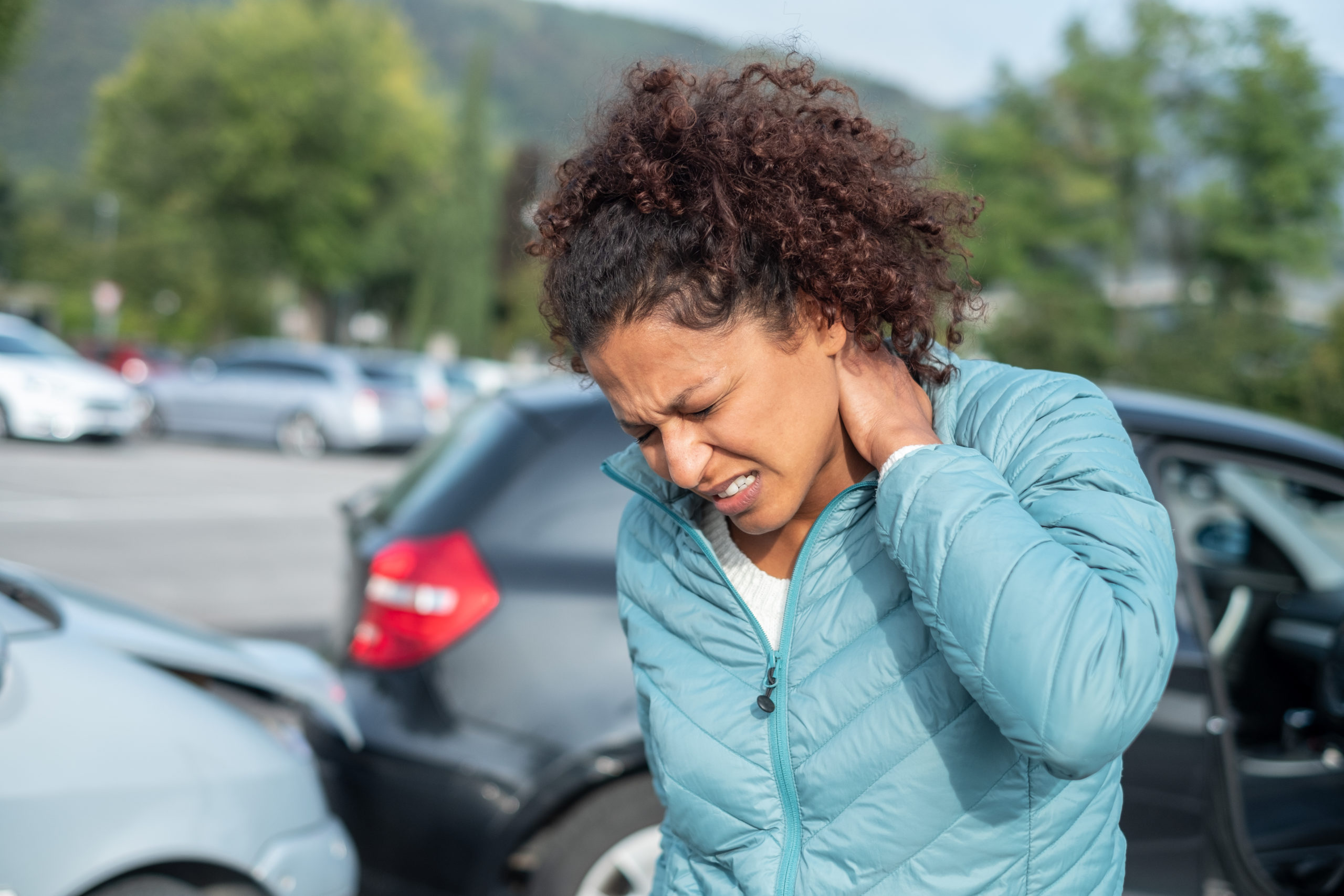Now it is a few days after your car accident, and you still don’t feel like yourself. Your neck is sore, you have a tough time finding the correct words or names, you feel constantly fatigued, and you’re struggling to focus your attention. Wanting more answers, you decide to contact your physical therapist, the one who treated your knee pain a year or so ago.

During the evaluation, your PT tells you that they agree you have whiplash, however, they believe your concussion is actually what is causing many of your debilitating symptoms.
Common Concussion Signs And Symptoms
- Dizziness
- Nausea/motion sickness/vomiting
- Difficulty concentrating or a feeling of being “one step behind”
- Off-balanced/stumbling
- Headaches
- Blurry or double vision
- Hypervigilance/rumination
- Feeling overwhelmed/irritable
- Noise &/or light sensitivity
- Sleep difficulty &/or extreme fatigue
- Memory loss
- Increased feelings of anxiety/stress
Several of these symptoms stand out to you, and you and your physical therapist agree that conducting a comprehensive concussion evaluation is the best next step. Your PT, who has the education and expertise to evaluate and treat concussions, guides you through a series of balance tests, then observes how well you perform different head and eye movements and the effect these movements have on your symptoms. At the end of the exam, you are pretty wiped out, but your PT says they have a plan.
What A Concussion Diagnosis Means
Now you’ve been diagnosed with a concussion and you’re wondering what this means. You’ve heard about it in football and other sports, and players seem to come back pretty quickly. However, your PT says your recovery can take some time and you’re wondering why.
A concussion is a traumatic injury to the brain that can be caused during a motor vehicle accident by a strike, blow, jolt, or violent shaking of the head. You don’t have to physically hit your head to suffer a concussion. A concussion affects blood flow in your brain and makes it so your brain’s functions – thinking, reasoning, deciding – are all more difficult and can cause problems they didn’t before. A specially trained physical therapist can help guide you to retrain your brain to perform these tasks efficiently again.
Your PT explains that your brain is having trouble coordinating your eye and head movements. One of the fastest reflexes in your body, the Vestibulo-ocular reflex (VOR), allows you to keep your eyes locked on a target while your head moves. Your eyes have to move in the exact opposite direction as your head at the exact same time (within 10 milliseconds) in order for the object you’re looking at to stay in focus. With a concussion, your VOR has been delayed, which explains why you’re having trouble focusing throughout the day. Your PT also explains that the temporary energy shortage in your brain explains your fatigue and difficulty with higher-level cognitive tasks, such as word finding. You start feeling some relief now that you’re finally getting some answers, and your therapist continues with the best part — a plan to help you start feeling like your full self again.
We Look Forward To Being A Part Of Your Healthcare Team.
If you or someone you know has been in a motor vehicle accident and can’t seem to get back to feeling normal, a concussion could be to blame. Symptoms of concussion can become immediately present or may arise weeks or months after the crash. Physical therapy can help.

